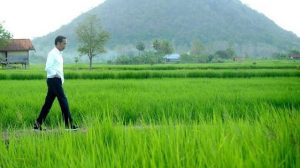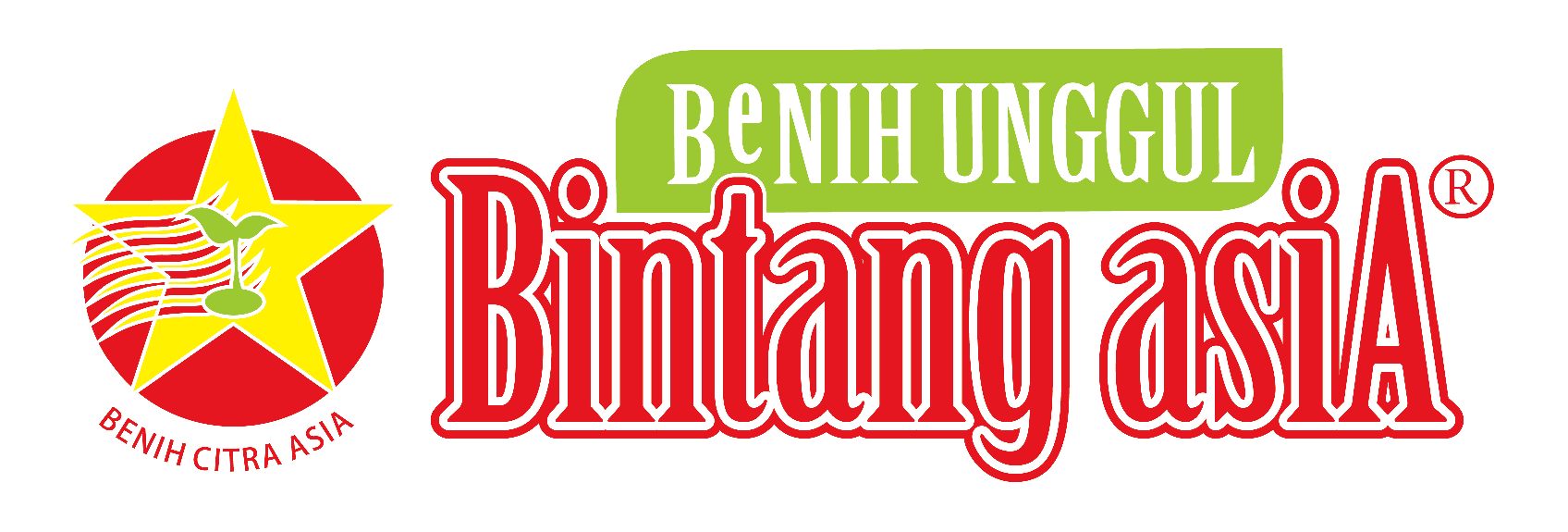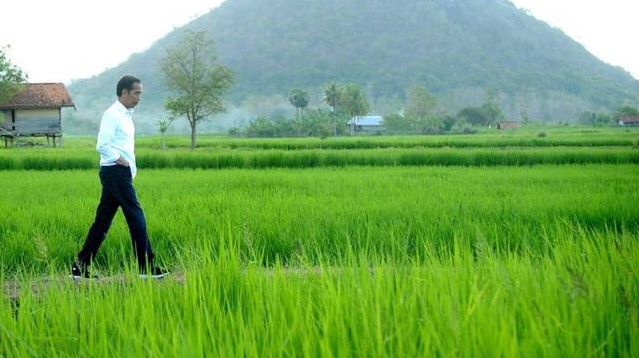Agricultural Industry as the strength of Nation
PRESIDENT talks about agriculture
PRESIDENT Joko Widodo said that the future of a nation is primarily determined by three strategic sectors, namely the food, energy and water resources sectors. In the Jokowi-Ma’ruf 2019-2024 government, the agricultural industry still becomes the point of strength to build the economic and national defence of Indonesia.

Minister of Agriculture Syahrul Yasin Limpo (SYL) is well aware of this. On various occasions, he emphasized that food affairs are the main task of the state, which is obliged to provide food for the people of 267 million people. Therefore, the direction of agricultural development to be realized is advanced, independent and modern agriculture. In any challenge, Indonesian agriculture continues to produce and even export. Thus, the farm sector becomes the direct support for national economic growth.
BPS data shows that the role of the agricultural sector in Indonesia is currently quite significant. From its contribution to total GDP reaching 14% and employing almost half of the total population.
The impact of COVID-19 pandemic in agriculture
The COVID-19 pandemic is not over yet. Other sectors are still likely to slump amid Indonesia’s economic growth, which fell to 4.19% (q to q) and 5.32% (YoY). “The agricultural sector is the savior of the national economy because its growth in the second quarter of 2020 GDP is very high, in the midst of declining national GDP and other sectors. So, in order to survive and revive humans, we must advance agriculture. Don’t let the second quarter rise, the third quarter drop,” explained Syahrul.
However, it does not affect the food supply in Indonesia. Syahrul said this could happen because the policies and programs implemented focused on boosting the production of 11 strategic food commodities.
Based on data from the Ministry of Agriculture-BPS regarding the estimated availability of national staple food, the availability of 11 federal food commodities by the end of 2020 for rice is estimated to reach 7.1 million tons, corn 2.6 million tons, onion 26,826 tons, garlic 192,808 tons, large chilli 16,791 tons, 38,128 tons of cayenne pepper, 242,360 tons of beef/buffalo, 282,140 tons of chicken, 1.5 million tons of sugar, and 7.3 million tons of cooking oil.
Millennial generation Based on BPS data, the performance of the agricultural sector was able to control inflation in Ramadan and Eid 2020. Inflation in May 2020 was at a low position, namely 0.07%. Then, from January to August 2020, Indonesia’s agricultural sector exports rose 8.82%, IDR 258 trillion. BPS also recorded a significant increase in Farmer’s Exchange Rate (NTP) for the September 2020 period, 101.66 compared to August 2020 NTP, only 100.65. The national Agricultural Household Business Exchange Rate (NTUP) in September 2020 was 101.74 or up 0.90% compared to August’s NTUP. No doubt from the series of actual performances of the agricultural sector, the Presidential Special Staff for Innovation, Entrepreneurship, and Millennials Billy Mambrasar appreciated the Ministry of Agriculture (Kementan) ‘s positive performance under the minister’s leadership Agriculture SYL. It has succeeded in increasing the export value of the agricultural sector, thus proving that agriculture is the most potent sector during the COVID-19 pandemic and running programs that excite the millennial generation to enter the agricultural industry.
When meeting with the Minister of Agriculture at the Ministry of Agriculture’s Head Office, Jakarta, Tuesday (13/10), Billy stated that the Minister of Agriculture SYL has a crucial program to improve national food security through a food estate that is currently being carried out in Central Kalimantan. Furthermore, as the millennial generation, Billy wants to achieve optimal agricultural output by increasing the use of farm technology and increasing the younger generation’s interest in the farming sector to become millennial farmers.
It also plans to support the implementation of millennial farmer programs such as the resonator program or millennial farmer leader to modernize agriculture and increase access to agricultural products to markets at the village level. “In the early stages, we will target crucial provinces such as Papua and Central Kalimantan as pilot provinces to create farming leaders among millennials. From several areas, it is targeted to produce thousands of millennial farmers. In the future, the results will not only supply national food needs but are also export-oriented.



Berita tentang Pertanian Lengkap
It’s fantastic that you are getting ideas from this post as well as from
our dialogue made at this place.
Feel free to surf to my web blog; perdagangan
Thank you for visiting our blog
Thanks for sharing. I read many of your blog posts, cool, your blog is very good.